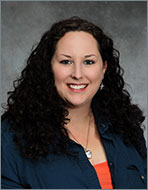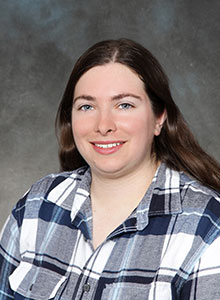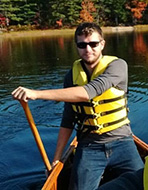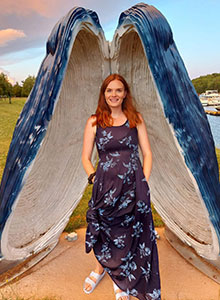An important overarching goal, vision and objective of the Maritime Aboriginal Aquatic Resources Secretariate is instituting a multi-functioning team of Aboriginal professionals who can create collaborative partnerships with other stakeholders involved in aquatic resources, oceans management, the commercial fishing industry and decision making within a collaborative management body framework.
Each member of the MAARS team has specific roles and responsibilities. Together they share the tasks, knowledge, approaches and resolve to achieve the vision and role of Aboriginal Peoples in all aspects of aquatic resources knowledge, oceans management processes, commercial fishing industry planning, and decision making processes for the collective advancement and rightful share to aquatic resources for the sustained economic growth of the Maritime Aboriginal Peoples.
MAARS Governing Board
The Maritime Aboriginal Aquatic Resources Secretariate is an established secretariate of the Maritime Aboriginal Peoples Council. The Maritime Aboriginal Peoples Council is the governing board of MAARS and approves policies. The operations and management of MAARS is handled by administrators.
MAARS Administration
MAARS is administered by a director and operates out of Truro, Nova Scotia. The approach and administration of MAARS is through task activities and a team effort. Each MAARS team member is a vital link to MAARS achieving its vision, mission, goals, and objectives. The sustained growth of the partners’ communities in the Atlantic commercial fishing industry, greater involvement in oeans management processes, decision making, and the contribution to the knowledge base about aquatic resources in and around the traditional homelands of the Mi’Kmaq, Malecite and Passamaquoddy is the catalyst for team effort and administration.
MAARS Services Team
Vanessa Mitchell
Executive Director, MAARS & MAPC Projects
 Vanessa Mitchell was a summer intern for IKANAWTIKET as a River Technician for the Shubenacadie River: Shaping Lands and Communities Through Time project in 2016. After returning to school in the fall, she maintained her relationship with the Maritime Aboriginal Peoples Council by contributing research towards the MAPC response regarding changes to the Canadian Fisheries Act and later turned her attention back to the Shubenacadie River project.
Vanessa Mitchell was a summer intern for IKANAWTIKET as a River Technician for the Shubenacadie River: Shaping Lands and Communities Through Time project in 2016. After returning to school in the fall, she maintained her relationship with the Maritime Aboriginal Peoples Council by contributing research towards the MAPC response regarding changes to the Canadian Fisheries Act and later turned her attention back to the Shubenacadie River project.
Originally from Campbellton, New Brunswick, visions of Atlantic salmon jumping from the Restigouche River are never far from Vanessa’s thoughts. She now lives in Dartmouth, Nova Scotia where she takes any opportunity to venture to the shores of the ocean, lakes, or rivers and breathe deep.
Vanessa recently earned her Master’s of Resource and Environmental Management from Dalhousie University. She also completed her Bachelor’s degree in Environmental Studies from Saint Mary’s University where she focused on watershed and fisheries management – writing her thesis on measures to address conflict in fisheries. She is especially interested in how different communities relate to and interact with the natural environment and the resources found within. As one can imagine, there is immense opportunity to engage that interest within the MAPC/IKANWTIKET environment.
Kathryn Townsend
MAPC/MAARS’s Aquatic Resources Manager
 Born and raised in Halifax, Nova Scotia, Kathryn spent much of her childhood exploring the lakes, beaches, and Kejimkujik Seaside Adjunct in Port Joli, where her love for wildlife and conservation developed.
Born and raised in Halifax, Nova Scotia, Kathryn spent much of her childhood exploring the lakes, beaches, and Kejimkujik Seaside Adjunct in Port Joli, where her love for wildlife and conservation developed.
Kathryn attended the former Nova Scotia Agricultural College in Truro, Nova Scotia, where she obtained her Bachelor of Agriculture with a major in Animal Science and a minor in Aquaculture. Her interest in conservation and marine biology led her to pursue a Master’s in Biology from Dalhousie University. Her thesis focused on fatty acid profiles and carbon stable isotopes of Atlantic pollock liver and diet. After her Masters graduation, Kathryn was employed for 2 years as an at-sea observer on a variety of fishing vessels including haddock, redfish, silver hake, offshore scallops, and shrimp draggers. At-sea, Kathryn gained a further appreciation of the fishing industry and the importance of conservation.
Kathryn and her wife, Meagan, currently live in Upper Hammonds Plains, Nova Scotia with their five cats (Professor Madigan, Higgs Boson, Sir Stewart the Stray, River and Trouble) and Border Collie, Sadie. Being a born and raised Bluenoser, Kathryn has a deep rooted connection to the province and sense of community.
Jesse MacDonald
MAPC/MAARS’s Habitat Impact Assessment Manger
 Jesse MacDonald took on the position of MAPC/MAARS’s Habitat Impact Assessment Manger in the summer of 2020.
Jesse MacDonald took on the position of MAPC/MAARS’s Habitat Impact Assessment Manger in the summer of 2020.
Having spent most of his life in Maryland, Jesse moved back to Nova Scotia where he was born to attend university. Jesse is a graduate of Acadia University’s Environmental Science program and completed the Advanced GIS program with Honours from Nova Scotia Community College – Center of Geographic Science.
Prior to joining MAPC, Jesse has spent his time trying to further his understand and appreciation of Nova Scotia’s marine ecosystems through his field and environmental consulting work. Jesse has spent time implementing restoration projects through out the Little Sackville River, and believes there is still much more to learn and work to be done.
Kaitlyn Curran
MAPC/MAARS’s Environment & Biodiversity Advisor
 Growing up in Kjipuktuk (Halifax, Nova Scotia), Kaitlyn has always been drawn to the sea. From jumping waves as a child to surfing and coastal hiking as an adult, the ocean continues to play an important role throughout Kaitlyn’s life.
Growing up in Kjipuktuk (Halifax, Nova Scotia), Kaitlyn has always been drawn to the sea. From jumping waves as a child to surfing and coastal hiking as an adult, the ocean continues to play an important role throughout Kaitlyn’s life.
Kaitlyn started her career in healthcare after earning her Bachelor of Nursing degree at Memorial University, in Newfoundland and Labrador. She has since worked as a registered nurse in the emergency department. Although critical care has been extremely rewarding, Kaitlyn could not deny her lifelong desire to work on marine and climate issues.
Kaitlyn then obtained her Master of Marine Management degree from Dalhousie University where she applied her background in healthcare to marine spatial planning. She investigated how participating in coastal activities benefits human health and the various barriers to accessing such spaces. During the master’s program she also completed an internship with Dalhousie University to investigate the human dimensions of the recreational mackerel fishery in the Maritimes. She continues to be interested in how humans interact with the natural environment and how we can address the global and local challenges that continue to impact positive human-nature relationships.
Aaron Allen
Webmaster
 Aaron Allen, the MAPC/MAARS Webmaster, has worked as a web designer, programmer and consultant for more than 30 years on many different projects both locally and nationally.
Aaron Allen, the MAPC/MAARS Webmaster, has worked as a web designer, programmer and consultant for more than 30 years on many different projects both locally and nationally.
Based in Truro, Nova Scotia, Aaron works from his home office and in the MAPC office and provides ongoing support for this project and many others. His range of experience includes work as a freelance journalist and writer.
Working closely with Roger Hunka and the rest of the MAARS team, Aaron has been busy developing this website as well as others for MAPC-MAARS.
MAARS Regional Stations
The three Aboriginal Peoples Representative Organizations’ communities live throughout the large Maritime region and, as the coastal Aboriginal Peoples of the Maritimes, occupy one of the longest coastlines in Canada. The area is prolific with many stake holder interests and ocean user activities involving many aquatic resources, oceans management, fishing industry, and decision making processes.
To cost effectively reach the entire region, the MAARS Community Aquatic Resources Development Advisors (CARDAs) are strategically deployed within the three Maritime Provinces with MAARS stations in Truro, Fredericton, and Charlottetown.
–
–
